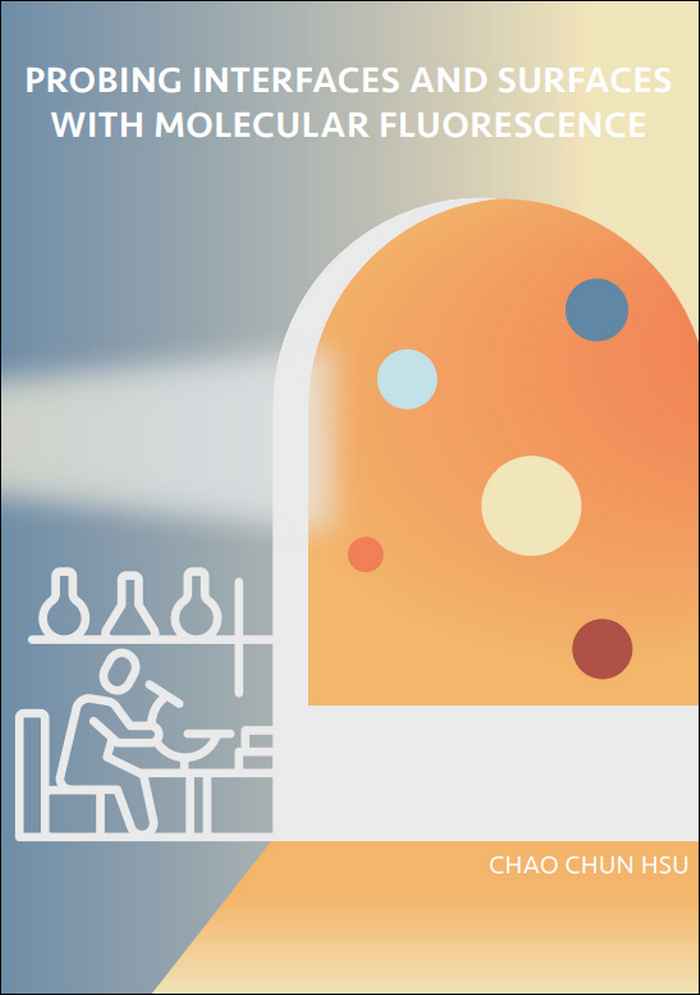Dick Stufkens Prize 2024 for Chao Chun Hsu
Research on friction and lubrication down to the nanometre
10 October 2024

In his thesis, Hsu describes the development and application of a method for using fluorescence spectroscopy to visualise the structure of interfaces and (contact) surfaces at high resolution. With his method, he gained fundamentally new insights into the friction between sliding surfaces, and into the action of lubricants to reduce this friction. He also succeeded in mapping nanoscale phase separation in polymer blends.
Mechanophores and superresolution microscopy
For the first part of his research, Hsu focused on mapping complex mechanical contacts using fluorescence spectroscopy. To do so, he designed and synthesised fluorescent molecules that ‘light up’ under the influence of shear forces, pressure and changes in free volume. Thanks to these ‘mechanophores’, he was able to use fluorescence spectroscopy to visualise actual contact surfaces in nanometre detail. This simultaneously provided information about the stress within the contact zone. Hsu's approach thus forms a bridge between friction on a macroscopic and nanoscopic scale.

In the second part of his thesis, Hsu describes how he managed to improve the super-resolution microscopy method PAINT to be able to investigate the phase separation of polymer blends. In doing so, he showed how polymer phases occur at the nanoscale in recycled polymer blends. This potentially changes the view on the recyclability of polymeric materials that were previously considered non-recyclable. This part of Hsu's research was conducted together with chemical companies BASF and BYK Altana, which can apply the new analytical methodology for the development of new industrial processes.
‘An enterprising researcher’
The jury for the Dick Stufkens Prize 2024 unanimously chose Chao Chun Hsu's thesis from among six excellent dissertations. The jury was impressed by the breadth of his experimental approach and the quality of the research, the results of which have been published in a number of articles in highly prominent journals as well as a fine dissertation. ‘The thesis is testament to the fact that Dr Hsu is an enterprising researcher who has shown, already early in his career, the ability to work independently. He has in a short period of time mastered the very diverse knowledge and understanding necessary for this challenging project. Moreover, with his thesis, Dr Hsu has managed to present highly complex subject matter in the field of physical chemistry and spectroscopy in a clear and highly structured and well-organised manner, making it understandable even to non-specialists.’ Hsu currently works as a Research Chemist at Quaker Houghton (Uithoorn), where he continues to explore the fascinating field of tribology and lubrication.
See also
- Holland Research School of Molecular Chemistry
- Chao Chun Hsu’s dissertation at the UvA repository